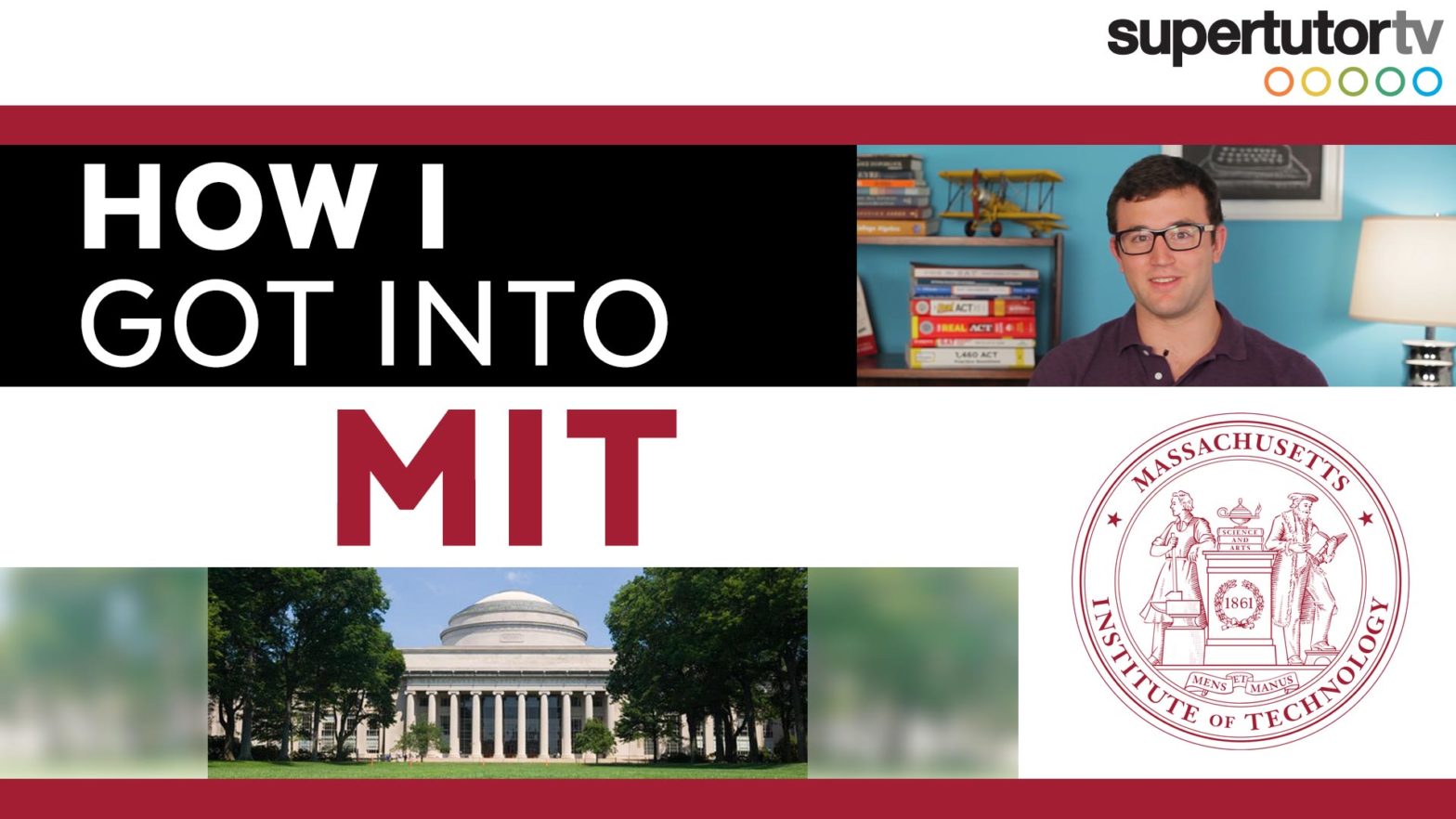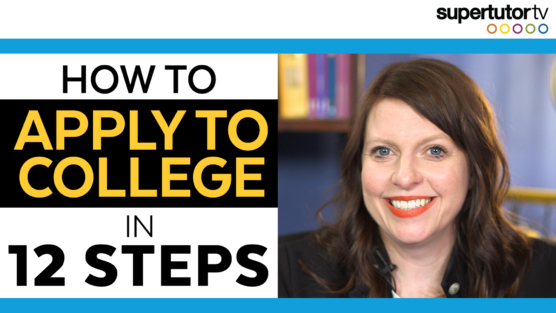Hey there, I’m Gabe Schneider, and I’m working at Supertutortv this summer. In this video, I am going to be talking about my high school career and how I managed to get into the Massachusetts Institute of Technology (MIT). I will be a sophomore this fall, and I will be majoring in Electrical Engineering and Computer Science, with a focus on Computer Science. I am also on the Swimming and Diving Team at MIT.
MIT was my top choice since my junior year of high school, at first because of its reputation as the best engineering school in the nation, but later still after deeper research into my chosen major, which was chemical engineering at the time. I applied Early Action to MIT and was accepted that December. However, my major changed to Computer Science during my first year at MIT when I found that it was the right choice for me.
Admission tip: Grades
I studied at Loyola High School of Los Angeles before attending MIT. At graduation, I received the Peter J. Filice, S.J., Award from Loyola, the award given to the student with the highest GPA. However, I was neither Valedictorian nor Salutatorian because Loyola also looks at other factors, like school spirit and community service. I received a weighted GPA of 4.71 while receiving one A- besides all A’s. My unweighted averaged over a 4 due to the A+ grades that Loyola would sometimes give out. As for my classes, I took 10 AP classes and probably another 10 or so Honors classes. Taking as many of these as possible is very important, as it shows MIT that you like to challenge yourself and that you can handle a tough schedule. I’m not incredibly gifted, but I worked hard and studied every night to drill down the day’s material. I wouldn’t play video games during the week, and I would usually get long-term homework done the night it was assigned.
Admission tip: Tests / Scores
Near the end of my junior year, I took the SAT® and scored a 2310: I got 800 on Reading, 770 on Math, 740 on Writing. Fortunately, I only had to take the test once. To prepare for the test, I received one-on-one tutoring from a tutoring company that focused on improving my critical reading score, which gradually improved over time. Also I’d say what really helped me was the fact that I took the test early and knew that I had plenty of chances to take it again. Because I knew I could take it a few more times if I messed up, I was pretty relaxed while I took the test, which let me take it at my own pace and not speed up and make stupid, small mistakes like I normally do on tests. I recommend taking the entrance tests early and being mentally prepared to take it multiple times if necessary to take pressure off of yourself.
MIT requires at least two SAT® subject tests, one in Math (level 1 or 2) and the other in science. I took Math 2 and Chemistry and got 800’s on both. A tip for these: you don’t have to answer every question. Make sure to make use of the points for leaving problems blank on the math sat® 2, because I sure did.
As for AP scores, I got 5’s on Human Geography, World History, US History, English Language and Composition, Latin, Psychology, Chemistry, Physics C Mechanics, and Calculus BC. I also got a 4 on English Literature and Composition.
Now, even though it seems MIT students need amazing numbers to get in, that’s just not the case. My roommate freshman year got barely above 2000 on the SAT® and had an average GPA, and he got in Early Action with me. Actually, I talked to my swim coach once about the SAT® score, and, from what she told me, it seems like there’s a certain cutoff score (a 2000 on the old SAT®) that each applicant needs, and all the scores above that threshold are treated generally the same in the eyes of admissions. My roommate was very passionate about math and science, and he was able to impart that upon the admissions people.
Admission tip: Extracurricular Activities
I did not participate much in school activities because of the great amount of time that competitive swimming takes up, but I was a member of a few clubs at my time in high school: Cubs Against Cancer, True Gentlemen’s Club, the Chemistry Club, and the Junior Classical League (JCL). I particularly recommend JCL for Latin scholars out there if your school has one, because it was a great experience for me, and because Latin is certainly far from dead. And alongside year-round club swimming, I did swim on my school’s Varsity swim team all 4 years.
My outside activities included club swimming, altar serving, and a bunch of community-service activities and events that I participated in with my high school. This list is normally longer for an average MIT student, but swimming took up all my time.
In the first few months of my senior year, I took 4 recruiting trips to MIT, Cornell, Columbia, and Cal Tech. These trips really let me see what daily life is like at each college, and I also got to sit through a few classes at each.
Recruiting at each college is vastly different. A coach’s recommendation at Columbia would have guaranteed my acceptance, as he has been active there for over 30 years. A coach’s recommendation at Cornell is nearly as powerful, but slightly less so because he’s a newer coach. On the opposite end of the spectrum, a recommendation from the Cal Tech coach would have given me a solid 30% chance of getting in, which is honestly pretty good. The recommendation from the MIT coach that admissions saw was a small piece of paper with my name and a number, ranking me among the recruits from 1-20 or so. Out of all of these colleges, MIT helped me the least in getting in. In the end, I favored MIT because the MIT swim team is Division 3, which would give me more time to focus on schoolwork and keep me from being exhausted year-round like I was through all of high school.
Admission tip: Essays
MIT requires each applicant to answer 5 essay questions that vary slightly every year. The most important one of those is the prompt that asks you to describe the world you come from: your family, school, city, or town and how that world has shaped your dreams and aspirations. I wrote about how my parents are divorced and how I lived in almost two different worlds: one with my mom and one with my dad. I explained how the two worlds were very different, but I stressed how one world did not surpass the other.
I feel that this topic is the most important of the bunch, as it gives you a chance to show adversity in your past that you were able to overcome.
The other topics revolved around what my major was going to be and how passionate I was about the subject. I talked about Chemical Engineering and my love for chemistry.
Another topic asked me about something I do just for the fun of it. I responded by describing a few of the card and board games that I designed for fun in my spare time.
The most important thing about your topics in my mind is that you need to show personal growth in at least one of your essays: there needs to be some conflict or obstacle that you come across that teaches you a lesson and allows you to grow as an individual because of it; colleges eat that stuff up.
Some Final Admission Tips
Take as many AP and Honors classes as you can manage. Even though your GPA might not be as high as it would otherwise be, the colleges see that you’re challenging and pushing yourself.
Take your time during testing and in writing applications, as you’ll be much less likely to make mistakes you wouldn’t otherwise make.
Don’t get intimidated by a school’s reputation or even its scores from accepted students. The admissions people want to see that you’re a good all-around package for their college and that you’ll contribute to their campus as a whole.
Also, no I have not invented anything (yet), and I’m definitely not a genius. I hope I showed how hard-working regular kids can also make it into MIT.
Anyway, I hope my story was helpful in some way and that you can get into the college of your dreams too. My freshman year of college was the most challenging yet rewarding year of my life so far. Make sure to enjoy college no matter where you end up. Don’t spend all of your time studying. Make new relationships, try new things, and make choices that will mold yourself into the person you want to be.





